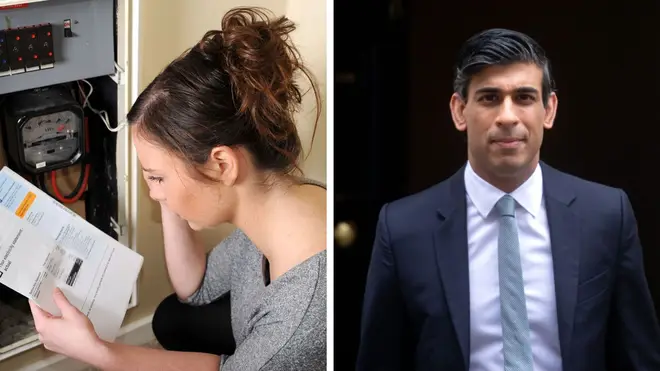
Ben Kentish 7am - 10am
29 December 2021, 07:14 | Updated: 29 December 2021, 22:00

Millions of families face a "cost-of-living catastrophe" as taxes and energy bills rise, a stark new report has warned.
They could be set to endure a £1,200-a-year hit on their wallets from next April.
The Resolution Foundation said that will come as the energy price cap gets hiked and the 1.25% rise in National Insurance contributions is introduced.
Compounding that is the forecasted 0.6% rise in inflation.
Torsten Bell, the chief executive of the Resolution Foundation, said 2022 could be defined as the "year of the squeeze".
"The overall picture is likely to be one of prices surging and pay packets stagnating," he said.
Read more: New Covid case record set as govt says people should still enjoy NYE – 'but cautiously'
Read more: How the nation made it through Covid-19 fight in 2021 - the key moments
"In fact, real wages have already started falling, and are set to go into next Christmas barely higher than they are now.
"The peak of the squeeze will be in April, as families face a £1,200 income hit from soaring energy bills and tax rises.
"So large is this overnight cost-of-living catastrophe that it's hard to see how the Government avoids stepping in."

TheEnergyShop boss explains what consumers can do if struggling to pay
Some Conservative MPs worry that cost-of-living problems could see public support for the Government take another hit after weeks of allegations of Downing Street parties while London was under various Covid restrictions.
A Government spokesman said it had brought in a £4.2 billion package of "decisive action" to help families, including reducing the Universal Credit taper and measures to help with bills.
The Resolution Foundation said energy bills could rise by about £500 from April, while the cost of collapsing providers – triggered by rises in the price of gas – would add about £100 on to bills.
Low income families, who spend more of what they earn on energy, will be disproportionately affected, potentially forcing them to spend 12% of their income on power, compared to 8.5% now.
National Insurance contributions will cost the average household £600 a year while real wages "had almost certainly" begun to fall, the foundation said.
It added they might not pick up until late 2022.